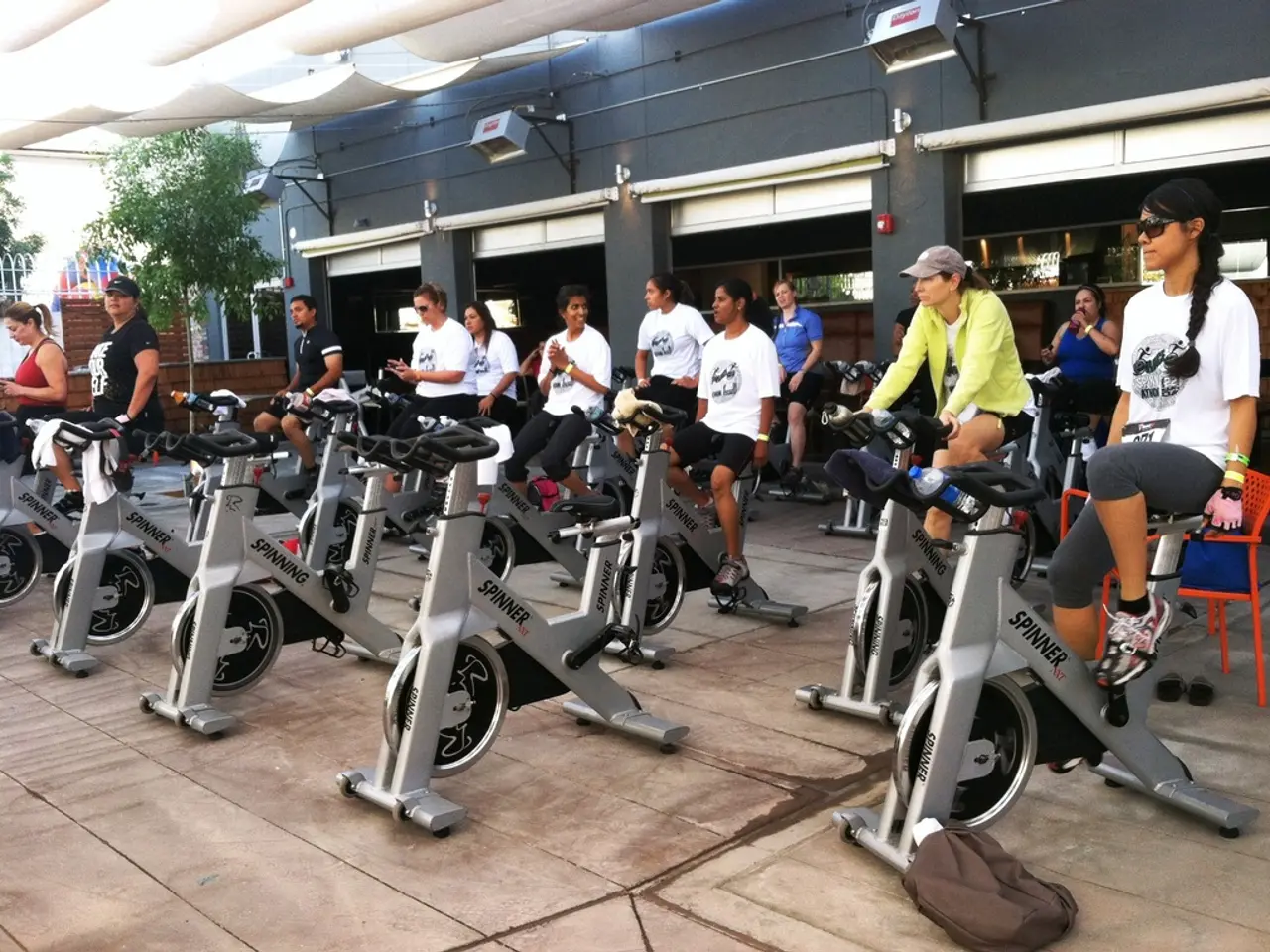Unlocking Opportunities in Exercise Science: Realize Your Prospects Immediately!
In today's fast-paced society, the demand for qualified professionals in exercise science is surging. With a focus on health, wellness, fitness, and rehabilitation, careers in this field offer a range of exciting possibilities.
Education and Certifications
A career in exercise science generally requires at least a bachelor's degree in exercise science, exercise physiology, kinesiology, or a related field like sports science or human anatomy. Additional certifications such as CPR and Basic Life Support (BLS) are commonly required, and advanced certifications like the ACSM Exercise Physiologist (ACSM-EP) or Certified Strength and Conditioning Specialist (CSCS) can enhance job prospects and specialization.
For higher-level positions, especially roles like nutritionist, athletic trainer, or advanced exercise physiologist, a master’s degree in exercise science or a related field is often necessary. Licensure or certification may also be required depending on the specific career path, such as personal training, physical therapy, or occupational therapy, often involving credentials from recognized bodies like the American Council on Exercise (ACE) or the Commission on Accreditation of Allied Health Education Programs (CAAHEP).
Career Paths
Within exercise science, career paths include exercise physiologist, personal trainer, athletic trainer, physical education teacher, sports nutritionist, wellness coordinator, fitness consultant, and athletic instructor. Kinesiology professionals might also pursue careers in coaching, physical therapy, massage therapy, occupational therapy, health education, sports medicine, and related roles that focus on health, wellness, fitness, and rehabilitation.
Sustainability and Mental Health
Sustainability and eco-friendly practices are becoming more important in the fitness industry, influencing the types of facilities, equipment, and programs that exercise scientists work with. Mental health is gaining recognition in relation to physical fitness, and many professionals in exercise science are beginning to integrate mental health strategies into their programs.
The Future of Exercise Science
The future of exercise science is vibrant and full of opportunities. With the increasing focus on preventative health, the demand for experts in exercise science is likely to continue its upward trend. The rise of telehealth and online fitness platforms are creating growing needs for virtual trainers and online wellness coaches.
Embracing technology, personalizing programs, addressing mental well-being, and promoting sustainability will not only enhance skills but also ensure that professionals meet the needs of a diverse clientele in a rapidly changing world.
Whether you're interested in personal training, physical therapy, sports nutrition, research, or corporate wellness, a degree in exercise science could be a strategic career move in 2023. The field has evolved significantly since its inception, with a growing focus on personalized fitness plans, holistic health, and the integration of technology in fitness regimens.
References:
[1] American College of Sports Medicine. (n.d.). Certified Exercise Physiologist (CEP). Retrieved from https://www.acsm.org/certification/cep
[2] National Academy of Sports Medicine. (n.d.). Certified Personal Trainer (CPT). Retrieved from https://www.nasm.org/certified-personal-trainer
[3] American Council on Exercise. (n.d.). ACE Certified Personal Trainer. Retrieved from https://www.acefitness.org/certified/personal-trainer/
[4] Commission on Accreditation of Allied Health Education Programs. (n.d.). Accredited Programs. Retrieved from https://www.caahep.org/Students/Find-a-Program.aspx
[5] Centers for Disease Control and Prevention. (2021, February 17). Physical Activity Guidelines for Americans, 2nd edition. Retrieved from https://www.cdc.gov/physicalactivity/basics/pa-guidelines/index.htm
- In the realm of exercise science, the demand for professionals in health, wellness, fitness, and rehabilitation is escalating, particularly as preventative health gains importance.
- Education is crucial for career advancement in exercise science; a bachelor's degree in a related field is typically required, while a master’s may be necessary for higher-level positions like nutritionist, athletic trainer, or exercise physiologist.
- Additional certifications such as CPR, BLS, ACSM-EP, CSCS, and licenses from recognized bodies like ACE or CAAHEP can enhance job prospects and specialization.
- Sustainability and eco-friendly practices are increasingly relevant in the fitness industry, shaping the facilities, equipment, and programs the professionals work with.
- Mental health strategies are being integrated into exercise science programs, recognizing their importance in relation to physical fitness.
- The field of exercise science offers numerous career paths, including exercise physiologist, personal trainer, athletic trainer, physical education teacher, sports nutritionist, and wellness coordinator, among others.
- With the rise of telehealth and online fitness platforms, there's a growing need for virtual trainers and online wellness coaches, making exercise science a promising field for personal growth, education, and self-development within the technology-driven lifestyle and health-and-wellness industry.




